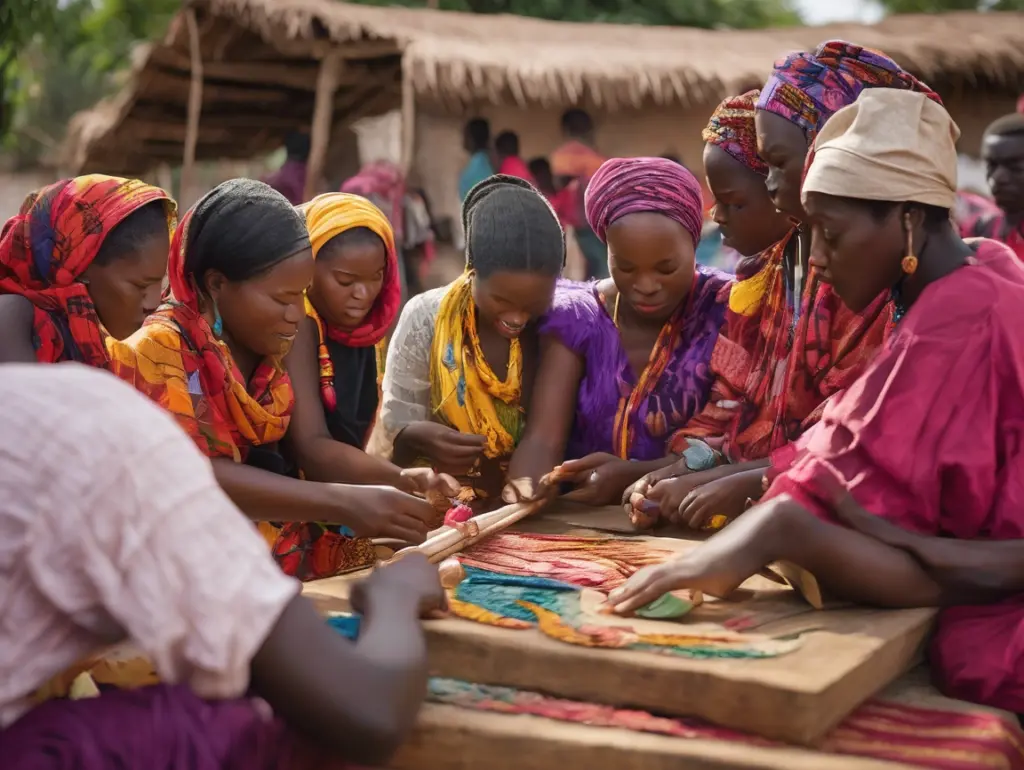By Himali Jinadasa | Senior Advisor for Development, Artisanal Collective
In Seville this July, Member States convened for the Fourth International Conference on Financing for Development (FFD4) and adopted by consensus the Compromiso de Sevilla—a 42-page outcome document that charts an ambitious path to close the estimated USD 4 trillion annual financing gap for the Sustainable Development Goals. By reaffirming the Addis Ababa Action Agenda and placing people at the centre of policy and investment decisions, the Compromiso de Sevilla signals a decisive shift from rhetoric to implementation, emphasizing solutions that are inclusive, transparent and rooted in national priorities.
The Compromiso de Sevilla underscores the need for catalytic investments in micro- and small-scale enterprises, support for women’s and youth economic participation, entrepreneurial pathways to sustainability, and new forms of blended, community-driven finance. While its text does not enumerate culture and the creative economy by name, its people-centred approach opens a clear avenue to embed cultural heritage, artisanal skills and creative industries as integral components of sustainable financing architectures.
Artisanal Collective proposes an integrated ecosystem aligned with the spirit of the Compromiso de Sevilla—leveraging three interlocking pillars to translate multilateral commitments into grassroots impact:
• Cultural Heritage LLM: A generative-AI model designed to document, protect and revitalize intangible cultural heritage and artisan craft knowledge, ensuring that centuries-old skills are preserved and enhanced for future generations.
• Empowerment and Market Access Programmes: Village-rooted training initiatives—targeting youth and women—and Artisan Master Workshops harness a custom AI system to deliver technical training, facilitate joint ventures and connect artisans with local and global markets.
• Branded Artisan Commerce Platform: A digitally enabled marketplace that guarantees artisans a predictable, year-round income by pooling production, overcoming capital constraints and offering premium, culturally authentic products directly to consumers.
These pillars draw directly on the Sevilla Platform for Action’s call to mobilize private capital for sustainable development, to bolster domestic resource mobilization and to forge country-owned financing strategies under the umbrella of the Integrated National Financing Frameworks. By retaining intellectual property within a nonprofit structure, this model exemplifies the blended public-private financing mechanisms championed in Seville.
Complementing these core tools, Artisanal Collective will deploy “Madame Planet”—a storytelling vehicle produced in partnership with Barbara Pyle—to reframe heritage through AI-created video segments. By issuing a global call to action for Heritage Corps volunteers and diasporic engagement, Madame Planet will amplify public awareness and galvanize new forms of solidarity finance.
Finally, Encounter Journeys embeds tourism as a strategic entry point. Through culturally immersive tours—crafted with partners like Intrepid Travel and Elders Hostels—this initiative activates place-based economies, overseen by national workgroups co-convened with tourism boards. Ethical private investments, including diaspora-led funds, will flow into regional cooperatives of artisan tourism communities, fulfilling the Compromiso de Sevilla’s mandate to expand access to social protection, support local economies and enhance crisis resilience.
The time has come to move from declarations to deployments. The SDG clock is ticking, and institutions seek credible, scalable solutions that absorb capital with transparency and ambition. Artisanal Collective stands ready to translate the commitments of the Compromiso de Sevilla into tangible development outcomes—where cultural resilience becomes economic resilience.
If you share this vision, join us at https://artisanalcollective.org and click Get Involved. Whether you are a policymaker, a diaspora leader, a philanthropist or a private-sector innovator, there is a seat for you at this table. Seville set the stage; now it is time to build the infrastructure—cultural, economic, digital and narrative—that empowers communities through the assets they already hold.

